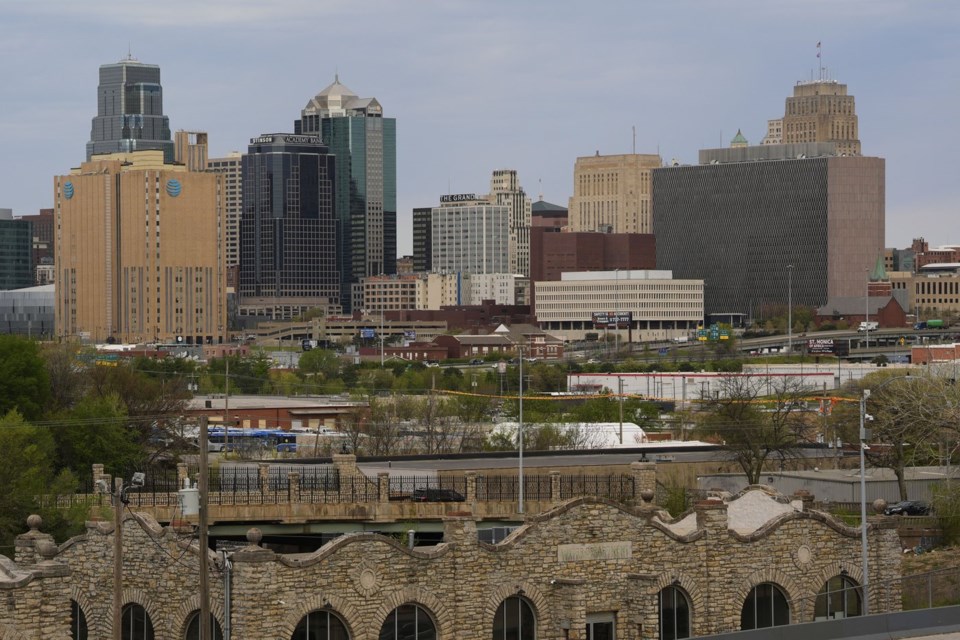KANSAS CITY, Mo. (AP) — In her 28 years working for the federal government, Shea Giagnorio provided day care for the children of U.S. soldiers, training for employees and oversight for safety net programs.
Public service took her from Germany to Alaska to Kansas City, Missouri, where she moved last year for a long-sought promotion.
But when she reported to a downtown federal building for work one day last month, her access card did not work. After a co-worker let her into the building, she checked her email: Her entire office had been let go in the ordered by President Donald Trump’s administration.
The 46-year-old single mom has canceled her apartment lease, is selling her new furniture and may have to pull her daughter out of college. She wonders what will happen to the at-risk populations her team helped serve at the , a part of the U.S. Department of Health and Human Services.
“Not only me, but all these peoples’ lives are turned upside down,” Giagnorio said.
The impact of the cuts by Trump appointees and can be found everywhere in the Kansas City metropolitan area, which has long been a major hub for federal agencies about 1,000 miles away from Washington, D.C. Money once promised to the region for public health, environmental, diversity, food aid and an array of other programs has been axed, and thousands of local jobs are in jeopardy.
With nearly 30,000 workers, the federal government is the largest employer in the region. One longtime Kansas City economic researcher said he believes the region could lose 6,000 good-paying federal jobs, which in turn would wipe out thousands of others in service industries.
An IRS worker said thousands of her co-workers fear they will lose their jobs, even as they put in overtime processing tax refunds in a building so crowded that they struggle to find desks. Under pressure, hundreds more agreed this past week to retire early or take a buyout.
“It’s a kick in the stomach to people that are doing everything they can to meet what’s required of them,” said Shannon Ellis, a longtime IRS customer service representative and president of the union representing local workers.
By Thursday, at least 238 Kansas City workers had taken the buyout offers and were expected to leave the agency in coming weeks. Ellis noted many of those same workers had been told they were essential and required to work overtime during tax season, some seven days per week.
A U.S. Department of Agriculture grant revocation disrupted a historically Black neighborhood’s plan to expand its program growing fresh produce in a food desert. A nearby pantry reduced its monthly grocery allotment for those in need after federal cuts left food banks shorthanded.
Urban farmer Rosie Warren grew 2,500 pounds of fruits and vegetables last year in community gardens to help feed the Ivanhoe neighborhood, where many Black families were concentrated under housing segregation policies of much of the 20th century.
Warren harvested greens, potatoes and watermelons as part of an effort to address food insecurity and health concerns in a neighborhood challenged by blight, crime and poverty. She was ecstatic last fall when the USDA awarded the neighborhood council a three-year, $130,000 grant to expand the gardens and farmers’ market serving the area.
In February, the council received a notice terminating the grant. The USDA had determined the award “no longer effectuates agency priorities regarding diversity, equity, and inclusion programs and activities.”
“What do you do if you don’t support providing access to food to people who don’t have it? Wouldn’t this make your job easier?” she said. “I think it’s absurd. It doesn’t make any sense.”
The withdrawal of federal funding for new lab equipment and vaccines means the city may be less prepared for the next pandemic.
The Kansas City Health Department’s laboratory is badly in need of an upgrade, with equipment dating to when the building opened in the 1990s.
One basement space is water damaged and rarely used. Another has equipment that is so inadequate that the city has to ship samples to a state laboratory 150 miles away, causing inefficiencies, agonizing waits for results and delayed response times.
But the funding for lab upgrades was abruptly eliminated last month as part of the Trump administration’s $11.4 billion cancellation of federal grants to states for public health.
An HHS spokesperson said the agency's downsizing, including cutting jobs and consolidating divisions, would save money and make the organization more efficient. As for the $11.4 billion in grant funding cuts, the spokesperson said, “HHS will no longer waste billions of taxpayer dollars responding to a nonexistent pandemic that Americans moved on from years ago.”
The IRS has offered a similar rationale for its downsizing, saying it is making process improvements that will ultimately more efficiently serve the public.
Musk said last year that Trump’s budget cuts would cause a “temporary hardship” that would soon put the economy on stronger footing.
One local economic researcher said it remained unclear just how deep that hardship will be in Kansas City, including whether it will just slow growth or cause population losses.
“It's a big burden that’s being placed on a narrow group of people,” said Frank Lenk, director of the Office of Economic Development at the Mid-America Regional Council, a nonprofit of city and county governments in the Kansas City region. “It will definitely take some of the steam out of the local economy."
Trump has credited DOGE with helping end “the flagrant waste of taxpayer dollars,” saving billions to help improve the nation’s finances.
The White House didn't respond to questions about Kansas City. But Trump said recently he would invite the Kansas City Chiefs to the White House to make up for a 2020 Super Bowl victory celebration that was canceled during the pandemic.
__
Associated Press writer Heather Hollingsworth contributed to this report.
Ryan J. Foley, The Associated Press




